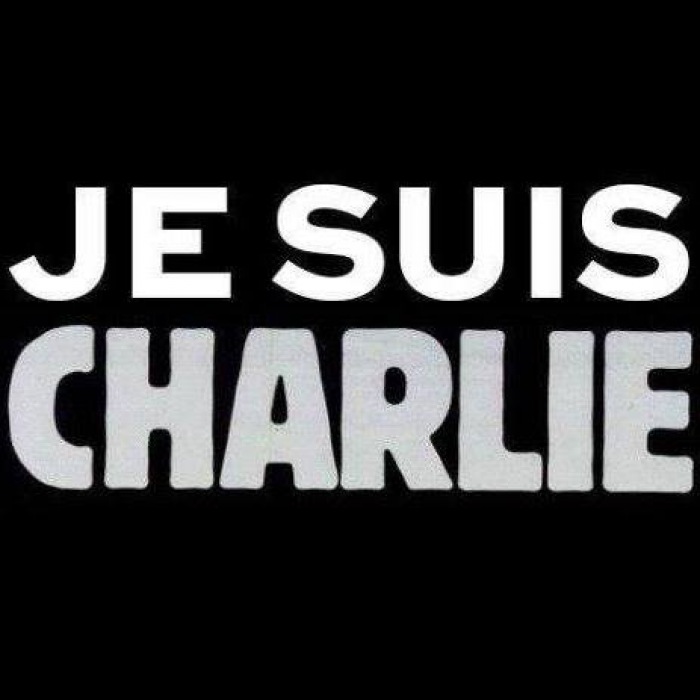After Terrorist Attack on Charlie Hebdo: Abolish the Blasphemy Paragraph 166 of the Criminal Code!
The state should protect artistic freedom - not the feelings of religious fanatics
"Public peace is not disturbed by artists who satirize religions, but by fanatics who cannot react to criticism appropriately," declared Michael Schmidt-Salomon, gbs spokesman, after the attack on the French satirical magazine "Charlie Hebdo". Worldwide expressions of solidarity after the assassination were encouraging, but not sufficient by any means. In Germany, for example, the so-called "blasphemy paragraph" (§ 166 of the German Criminal Code, StGB), which gives the ominous impression that "religious feelings" are more important than the freedom of art, must be abolished.
"With Jean Cabut ('Cabu'), Georges Wolinski, Stéphane Charbonnier ('Charb') and Bernard Verlhac ('Tignous'), four of France's most important caricaturists died in the attack. They leave a void that can hardly be filled," said Schmidt-Salomon. Few people have shown such courage in defying the attempted intimidation by Muslim and Christian fundamentalists. "We can only hope", he added, "that Cabu, Wolinski, Charb and Tignous will find successors worldwide who will not be deterred by the terrible bloodbath in Paris".
Schmidt-Salomon described the reaction of politicians and the media to the attack in Paris as "encouraging" and clearly different - that is, in the sense of strengthening freedom of art and opinion - from what they had done in the so-called "cartoon controversy" in 2006. "At that time," Schmidt-Salomon said, "after the violent excesses triggered by the publication of twelve Mohammed caricatures in the newspaper 'Jyllands Posten', many politicians appallingly caved in by showing false respect for the 'hurt feelings' of religious fanatics". Some politicians subsequently even acted as "freeloaders of religious fundamentalism" and demanded strengthening of the "censorship paragraph 166 StGB". The Giordano Bruno Stiftung responded immediately with a wide-spread public petition, which clarified that the freedom of art should never be restricted out of consideration for religious narrow-mindedness.
At that time, the gbs had already demanded the abolition without replacement of §166 StGB, which threatens artists with imprisonment for up to three years, if they "demean" religions or philosophies in a way that endangers "public peace". "In practice, this paragraph has led to a complete reversal of the perpetrator-victim relationship," Schmidt-Salomon explained. "Renowned artists such as Kurt Tucholsky and George Grosz were disciplined on the basis of this censorship paragraph. In fact, however, public peace was never threatened by critical art, but rather by religious or political fanatics who were unable to rationally process the artistic questioning of their worldview." Schmidt-Salomon speaks from personal experience: his rock musical "Das Maria-Syndrom" ("The Maria Syndrome"), a homage to the American musician and enfant terrible Frank Zappa, was banned in 1994 based on §166. One of the main reasons back then: After press reports about the play, Catholic fundamentalists had covered him in death threats.
"If freedom of art is really as important to German politicians as they claim, they should take the long overdue step of abolishing the old blasphemy paragraph," Schmidt-Salomon demands. "We should be aware that the degree of freedom of a society is measured not least by the freedom it grants to satirists. For they are the first to fall victim to totalitarian thinking, since totalitarianism is always accompanied by a distinctive allergy to humour. A modern constitutional state should therefore not only protect the freedom for critical and above all satirical art, but also encourage artists in their cultural work to question traditional views. This is only possible if religious or political fanatics are put in their place. This requires the legislator to clearly state that the inability of totalitarian thinking groups to take criticism can never be rewarded with a restriction of the freedom of art, opinion, and the press. This in turn demands that the old blasphemy paragraph 166 of the German Criminal Code, the core of which originates from the time of the wedlock between throne and altar, disappears! However well meaning: Narrow-mindedness, intolerance and a lack of humour are not legal interests that should be protected in any way."
Addendum:
Today (January 8, 2015) Michael Schmidt-Salomon submitted a petition to the Petitions Committee of the German Bundestag to delete § 166 StGB without replacement (see this screenshot). It usually takes 2-3 weeks for such a petition to be published on the Committee's website and to be signed by citizens. Occasionally, it can take a little longer, as the case of the petition "Grundrechte für Menschenaffen" (Basic Rights for Great Apes) also submitted by Schmidt-Salomon shows, which was filed more than 8 months (!!) ago and has not been published to this day, which the responsible persons of the petitions committee justified with quite strange arguments.

